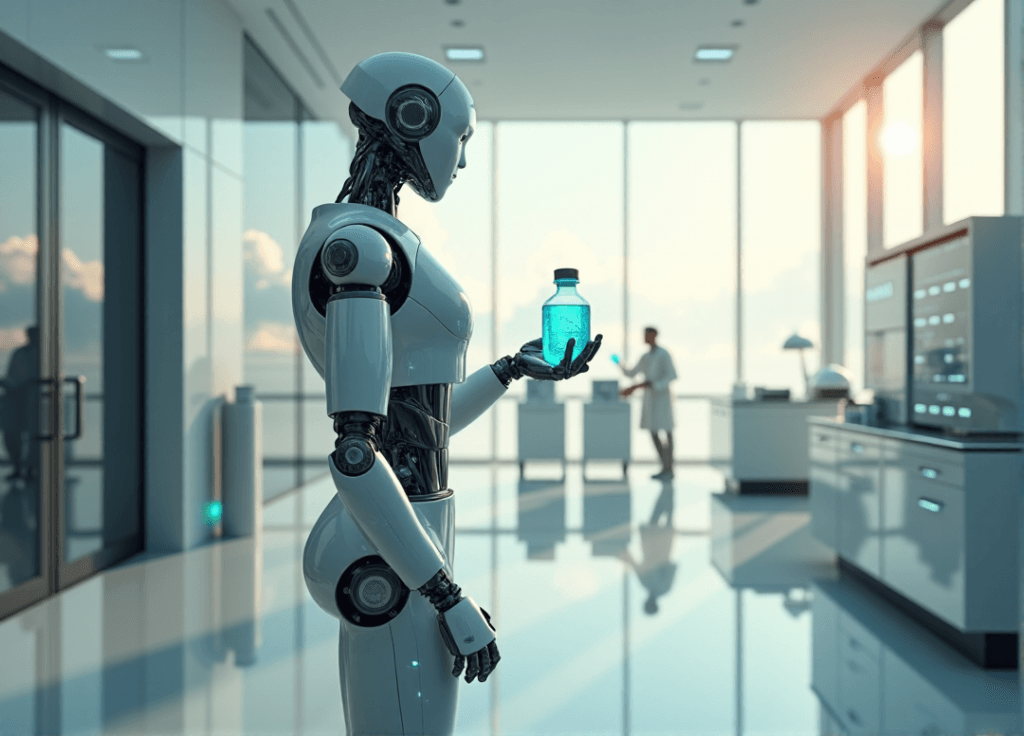Revolutionizing Healthcare Transformation with AI-Driven Innovation
Will AI Automation Skills Replace Human Healthcare Professionals by 2030? As healthcare continues its digital transformation, mastering AI automation skills is crucial for professionals seeking to stay ahead.
The Rise of AI in Healthcare: A New Era of Transformation
AI-driven innovation has been revolutionizing various sectors, including healthcare. With the increasing adoption of machine learning capabilities and artificial intelligence expertise, the industry is witnessing a significant shift towards automation, enabling efficient and effective patient care.
The Benefits of AI in Healthcare
- Improved accuracy: AI algorithms can analyze large amounts of data quickly and accurately, reducing errors in medical diagnosis and treatment.
- Increased efficiency: Automated process management enables healthcare professionals to focus on high-value tasks while machines handle mundane but essential duties.
- Enhanced patient experience: AI-powered chatbots and virtual assistants provide personalized support and guidance, improving patient satisfaction and outcomes.
The Future of Healthcare Professionals in an AI-Driven World
As AI automation skills become more prevalent, there is a growing concern that human healthcare professionals may be replaced. However, this is unlikely to happen by 2030. Instead, AI will augment and enhance human capabilities, freeing up professionals to focus on high-value tasks such as:
- Strategic decision-making
- Complex case management
- Personalized patient care
The Importance of AI Automation Skills for Healthcare Professionals
In order to remain relevant and effective in an AI-driven healthcare landscape, professionals must acquire the necessary skills to work alongside machines. This includes:
- Machine learning fundamentals
- Data analysis and interpretation
- AI application development
Transforming Patient Care with AI-Driven Innovation
AI has the potential to revolutionize patient care in several ways:
| Area of Transformation | Description |
|---|---|
| Personalized Medicine | AI algorithms can analyze genomic data and medical history to create personalized treatment plans. |
| Disease Prediction and Prevention | Machine learning models can identify high-risk patients and provide early interventions, preventing disease progression. |
| Virtual Nursing Assistants | AIs can monitor patients remotely, providing real-time support and guidance to healthcare professionals. |
Automated Process Management in Healthcare
Automating routine tasks enables healthcare professionals to focus on high-value activities such as:
- Patient assessment and triage
- Medication management and reconciliation
- Discharge planning and coordination
The Role of AI in Clinical Decision-Making
AI algorithms can analyze large amounts of data to provide healthcare professionals with accurate and unbiased recommendations. This includes:
- Disease diagnosis and staging
- Treatment options and outcomes prediction
- Personalized medication management
Challenges and Limitations of AI in Healthcare
While AI has the potential to revolutionize healthcare, there are several challenges and limitations that must be addressed:
- Data quality and availability
- Algorithm bias and accuracy
- Regulatory frameworks and standards
Conclusion
The integration of AI-driven innovation in healthcare is inevitable, and mastering AI automation skills is crucial for professionals seeking to stay ahead. By understanding the intersection of technology and human expertise, you’ll gain valuable insights into harnessing AI’s potential in business transformation, driving growth and success in an increasingly automated landscape.
Additional Sources of Information
For more information on AI-driven innovation in healthcare, please refer to the following sources:
- American Medical Association (AMA): “Artificial Intelligence in Medicine: A Guide for Physicians”
- World Health Organization (WHO): “Global Diffusion of eHealth: Making Universal Health Coverage Achievable”
- Mayo Clinic Proceedings: “The Future of Artificial Intelligence in Healthcare”
References:
- American Medical Association. (2020). Artifical intelligence in medicine: A guide for physicians.
- World Health Organization. (2019). Global diffusion of eHealth: making universal health coverage achievable.
- Mayo Clinic Proceedings. (2020). The future of artificial intelligence in healthcare.
Explore more in our category page or visit our homepage.
